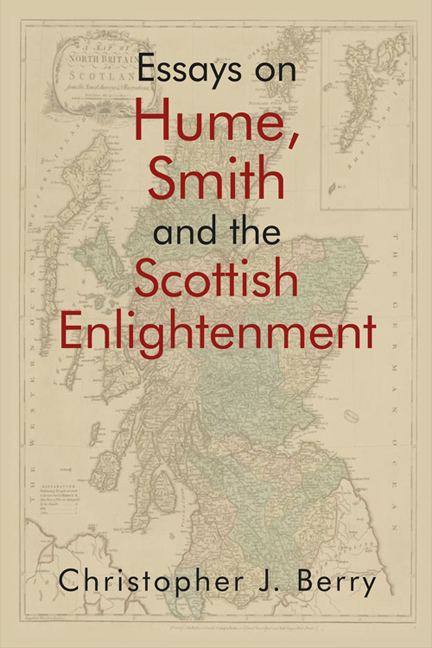16 - Adam Smith’s ‘Considerations’ on Language
Published online by Cambridge University Press: 06 May 2021
Summary
Adam Smith's ‘Considerations Concerning the First Formation of Languages’ was first published as an appendix to the third edition (1767) of the Theory of Moral Sentiments, but it has not been reviewed in its own right at any length. This is so even though Smith himself, according to Dugald Stewart, ‘set a high value upon it’ (Life II, 44/292). Stewart's estimation was borne out with the discovery of the student notes of Smith's lectures on rhetoric and belles-lettres, delivered at Glasgow in 1762–3 (although these were an expansion of lectures given some ten years previously at Edinburgh), since it seems that the only one of these lectures Smith thought it worthwhile to both expand and publish was the one on the origin of language (LRBL 3, 9–13).
It is not surprising that Smith lectured on this particular topic, for two main reasons. First, a distinctive feature of the Scottish Enlightenment was its preoccupation with style and rhetoric, and a general concern with language both written and spoken. The great fear of the Scots was that they would appear provincial alongside the more fashionable centres of London and Paris. There are numerous manifestations of this fear. It can be seen to be one of the motivations behind the establishment of the innumerable clubs that existed in eighteenth-century Scotland; indeed, one of the best known of these clubs, the Select (whose members included Kames, Hume, Blair and Smith himself) established the Select Society for Promoting the Reading and Speaking of the English Language in Scotland (McElroy 1969: 58). There was, further, the curious incident of the importation from Ireland of Thomas Sheridan, in 1761, to give lectures in Edinburgh on elocution and the English tongue. Perhaps the most characteristic feature of this preoccupation was the desire to eradicate ‘Scotticisms’. For example, James Beattie published in 1787 (after the original pamphlet had proved so popular that all copies were accounted for) a little book, the title of which is instructive, Scotticisms; Arranged in Alphabetical Order Designed to Correct Improprieties of Speech and Writing. Its aim was ‘to put young writers and speakers on their guard against some of those Scotch idioms, which, in this country, are liable to be mistaken for English’.
- Type
- Chapter
- Information
- Essays on Hume, Smith and the Scottish Enlightenment , pp. 290 - 302Publisher: Edinburgh University PressPrint publication year: 2018



